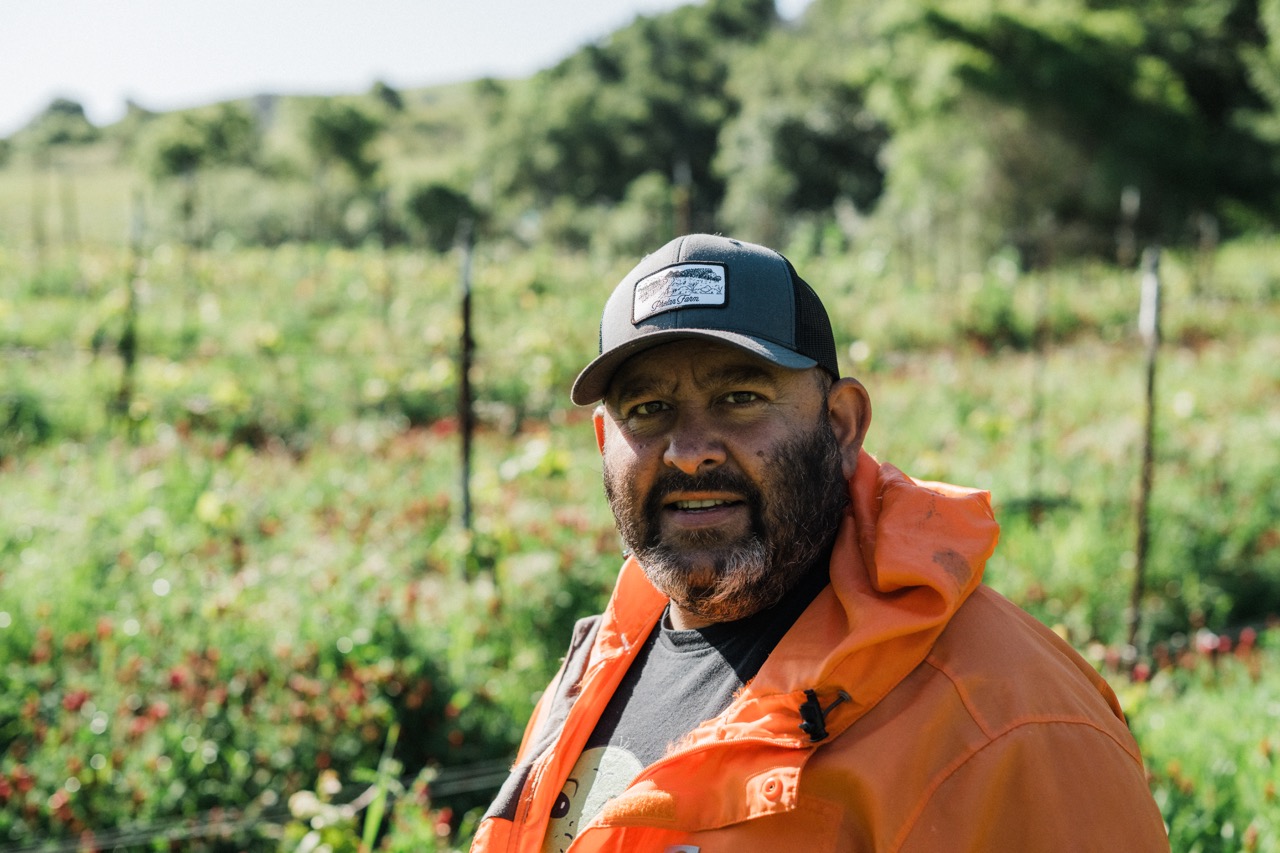
Rajat Parr: The Fabric of Life
30.8.2025
I’ve been following Rajat Parr’s story for years — and honestly, it feels like something Netflix should turn into a series, which I hope it will.
Well, actually, he's already featured in one: Somm, the cult documentary that introduced a whole generation to the intensity of the sommelier world.
Rajat Parr made his name on the restaurant floor, first at Rubicon in San Francisco under the legendary Larry Stone, then later building wine programs at places like Fifth Floor and Michael Mina. His charisma and incredible palate quickly made him one of the most recognised sommeliers in the U.S.
Today, his focus is on Phelan Farm (and 3 more viticultural projects, nestled under the Parr Collective umbrella) in Cambria, a village on the California coast, midway between San Francisco and Los Angeles, where he’s turned toward regenerative farming and deep connection with the land. I really enjoy this shift: from guiding diners through bottles and younger somms through the maze of hospitality to guiding vineyards through seasons.
He is the type of person who can spread enthusiasm and captivate crowds without even trying, with unflagging passion and simplicity that inspires me. What a pleasure to pick his brain for this interview series of ours!
Words by Milan Nestarec, photos courtesy of Rajat Parr / Phelan Farm
You are a grower, winemaker, sommelier, you have two books under your belt, participating in the SOMM series... Your story is nothing short of amazing and it inspires other people. How can you manage all this when there are 24 hours in a day and a person only has one life?
Hahaha. Good question. I used to do a lot of things in the past. Now I only farm my vineyard in Cambria and stay in one place.
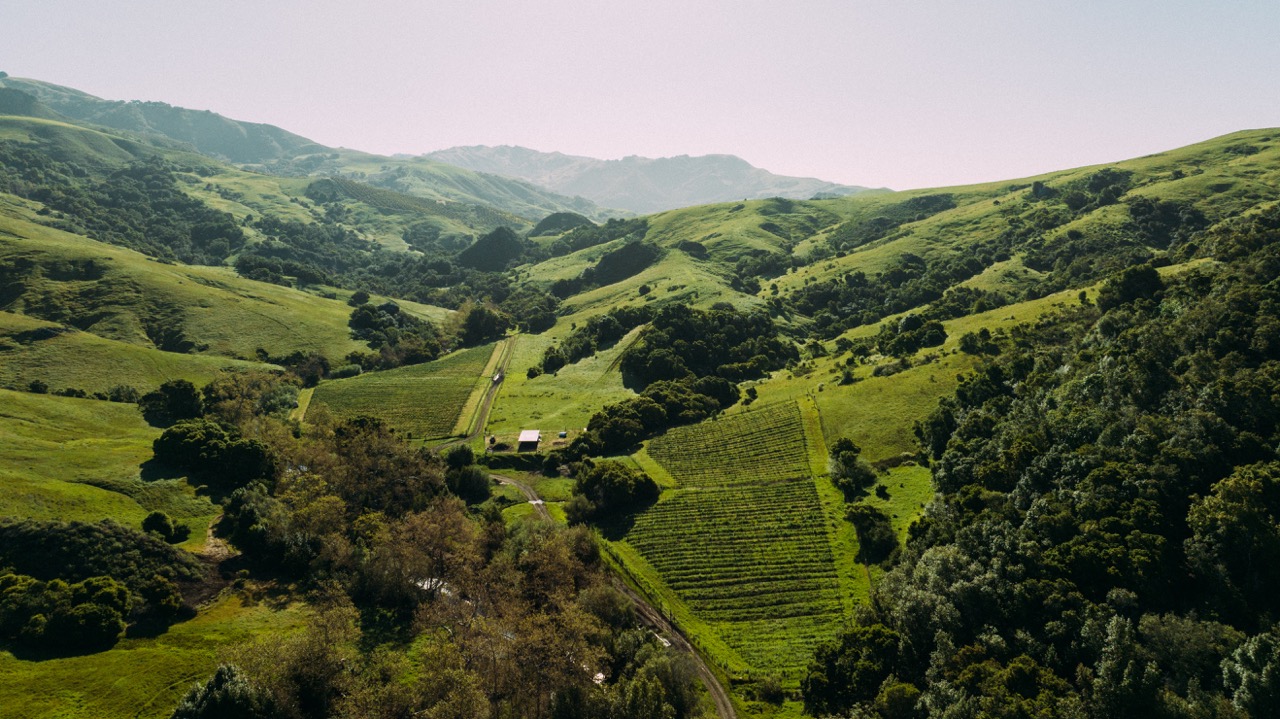
Given all the things you do, I can imagine that you are curious and interested in many new things and adventures. Are you a typical project starter who enjoys the initial phase, or are you excellent at finishing, in the pursuit of the goal? Or both?
I used to love starting the project and having someone else finish it, but now I like to do it all. Once I turned 50, I changed. Better late than never.
A lot has been said about the sommelier chapter of your life, but I’d still like to go back to it. Who influenced you the most and shaped your perspective at the time? Was it Larry Stone, the famous wine director of Rubicon in San Francisco? What is he like?
Definitely, Larry Stone. He was the first person (after my father) to teach me about life and, of course, wine. I met him in 1996 when I knew very little about wine. He was at that time the best and most famous sommelier in the US. He took the time to teach and train me. He was very strict but also very kind. I still ask his advice for everything in life.
You excel at blind tasting. I love this approach because it completely exposes a person — you have to set your ego aside and approach it with total humility. It often breaks down prejudices, and that’s the best part. Too often, people judge or even worship wines before they’ve tasted them, which I think is wrong. What does blind tasting mean to you?
I think it’s the best way to understand wine. The wine should taste like the varietal and the place and then, it should taste good!! I still love doing blind tastings
You've trained a lot of sommeliers – what do you think is the most important skill of a somm? Knowledge is important, obviously. But then there's a certain chemistry that develops between the sommelier and the guest. Do you think it's something that can be learned, or do you just have to have it in you?
I think understanding wine is very important, but hospitality is even more important. I encourage the younger sommeliers to be humble and curious. Those are the cornerstones of development. The world moves too fast these days. We need to slow down and understand each other better.
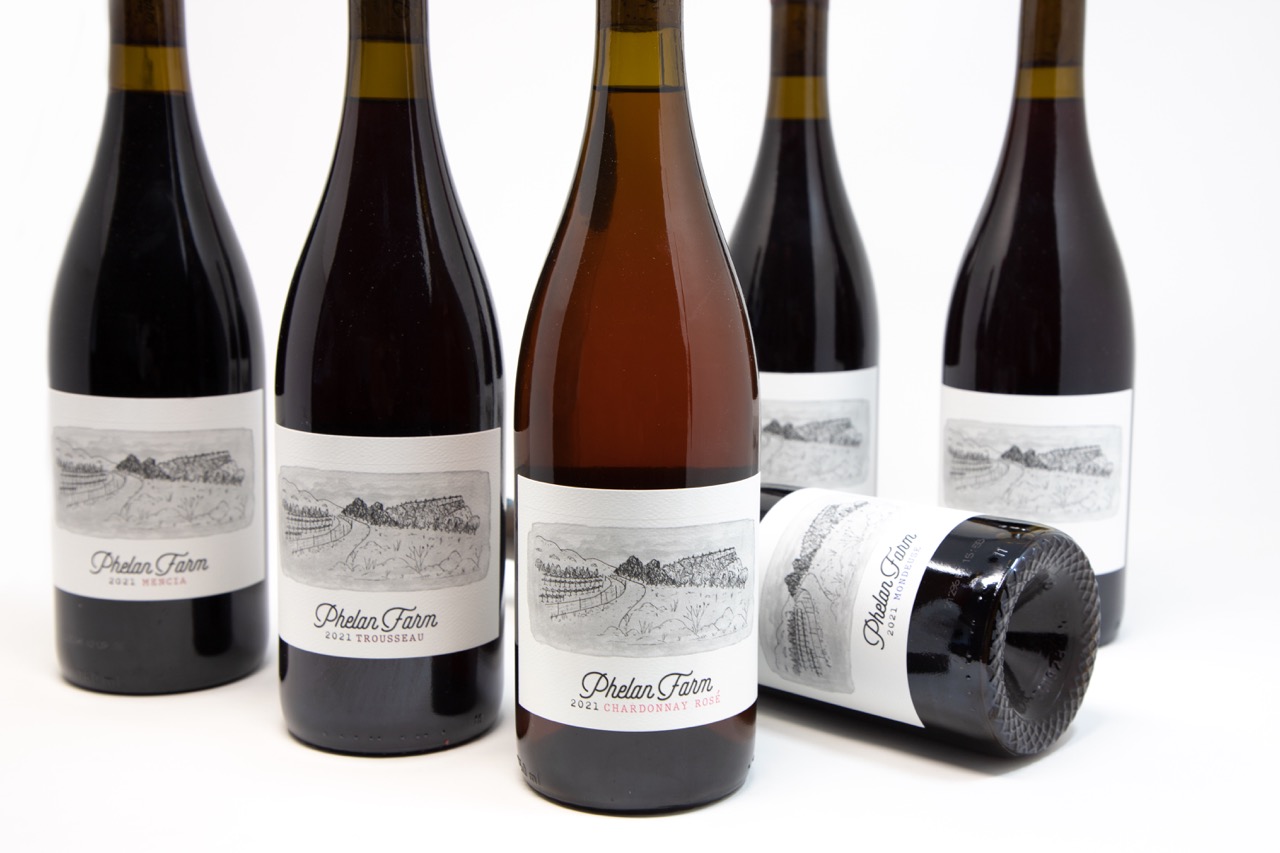
I'd like to know more about the moment you started making wine. Who inspired you the most as a winemaker at that time, was it Jim Clendenen from Au Bon Climat in Santa Barbara? Or winemakers like the Burgundy legend Jean-Marc Roulot?
Jim Clendenen was instrumental in my early days, like between 2000 and 2008. Jean-Marc Roulot also helped me a lot. When I started to go more in the natural wine way, i.e. 2015 onwards, Stephane Tissot and Thierry Allemand were my guiding lights.
How did you meet Greg Phelan, from whom you took over the ungrafted Chardonnay and Pinot Noir vineyards in Phelan Farm in Cambria? How did you find the place? What are its specifics?
I met Greg Phelan in 2016. I bought grapes from his vineyard in Cambria. Then I asked him if I could draft some vines on his property, which I started doing in 2017. These vineyards are very unique. 4.5 hectares in the middle of a forest. No house, roads, people, phone service, or internet. It's magical. I kept some of the ungrafted Chardonnay and Pinot noir and then added Trousseau, Poulsard, Gamay, Mondeuse etc. It's a very cool climate, we don't have many days over 30 degrees Celsius, and the harvest always takes place in October.
"I try to focus only on things we need. I try to avoid things I want."
What other interesting projects are you involved in? I know you were searching for old original vineyards together with Abe Schoener, the founder of Scholium Project and the Los Angeles River Wine Company.
Yes, I am fascinated with old vines. We produce Palomino and Pais from vines planted between 1896 and 1912, which is amazing.
Do I understand correctly that you have combined all the activities under the Parr Collective?
We bottle about 30 wines a year – all by hand, without fining or filtration, most also without any SO2. Since we have 4 brands – Phelan Farm, Stolo, Brij Wines and Scythian Wine Co. – we have created a place where people can come and taste and drink in Cambria.
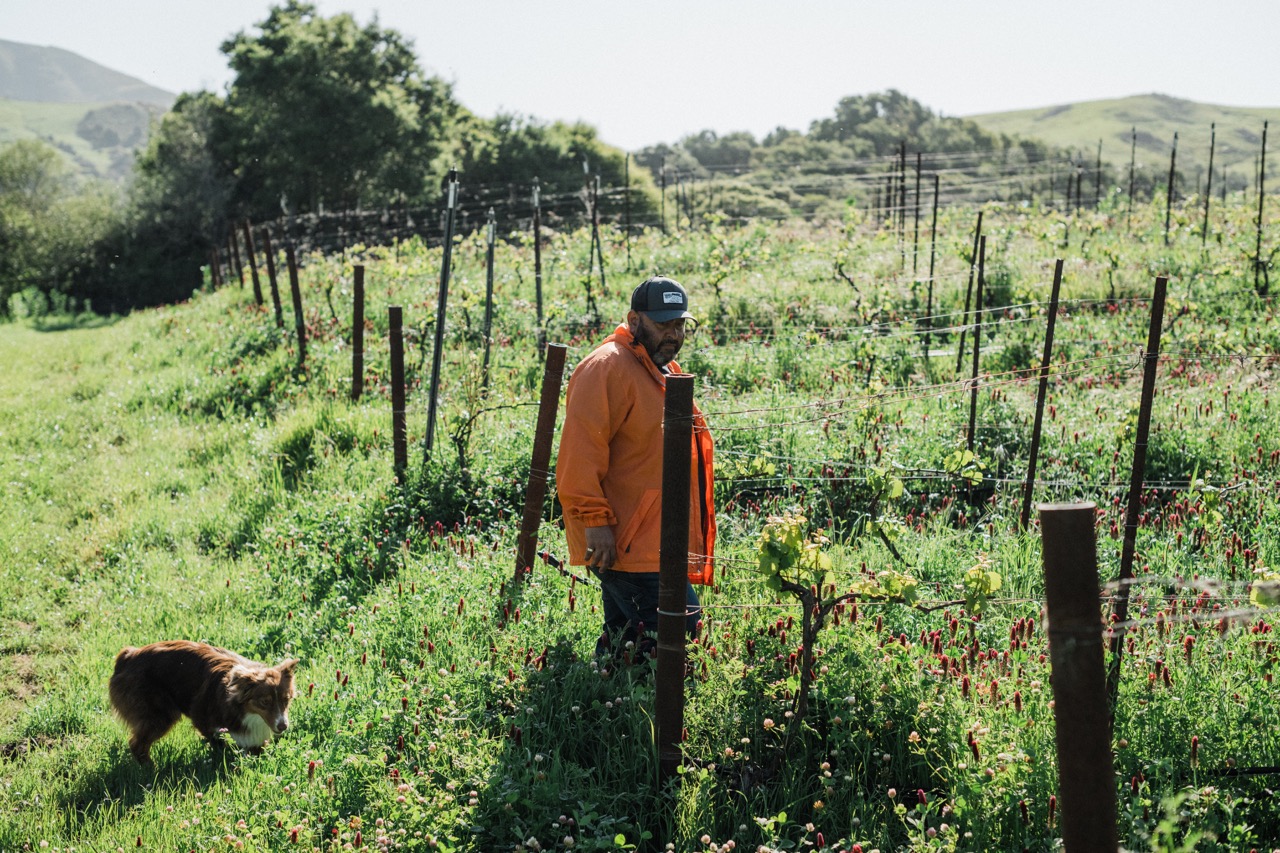
You are growing varieties from Jura, Savoie or Galicia, which I reckon should give interesting results in your area in the future. How did this whole idea develop – and do you see already today if something works better and something less?
At first, it was mostly experimental. I wanted to plant late-ripening varieties that would be at optimal ripeness in October at 12 % alcohol. We have a very cool summer, so I thought Alpine varieties would work perfectly. All of the varieties worked well, but the best were Savagnin, Gringet and Trousseau. Poulsard is hard to grow here because of mildew and oidium pressure – and we don't spray any copper and very little sulphur.. Also hard to ripen Altesse, even though Jacquere and Gringet work very well.
You also work with Gruner Veltliner – my number one variety, so I'm obviously curious about how it works in your case. A lot of people think that with the increasing heat, it is not suitable for growing. I don't think so, in my opinion it has a great future, with the right approach. So, you and Gruner, how do you do?
I make a little of it, from a vineyard located about 40 minutes south. Also a coastal site but a little warmer than us. I think it works really well here.
Your young plantings of Gringet, Gamay and Trousseau are planted on a higher line, inspired by Kelly Mulville from Paicines Ranch Vineyard. Please tell me more about this growing system.
Yes, we planted Trousseau, Gringet and Gamay to grow them in goblet a little bit higher, due to frost pressure. It’s not as high as at Paicines ,but we will see. Also, these vines will be without any permanent irrigation. The other vineyards all have irrigation, even though we don't use it, except for frost protection. The vines are doing well. We should be able to start forming the trunk next year and hopefully see a little fruit in 2027. Very exciting!!
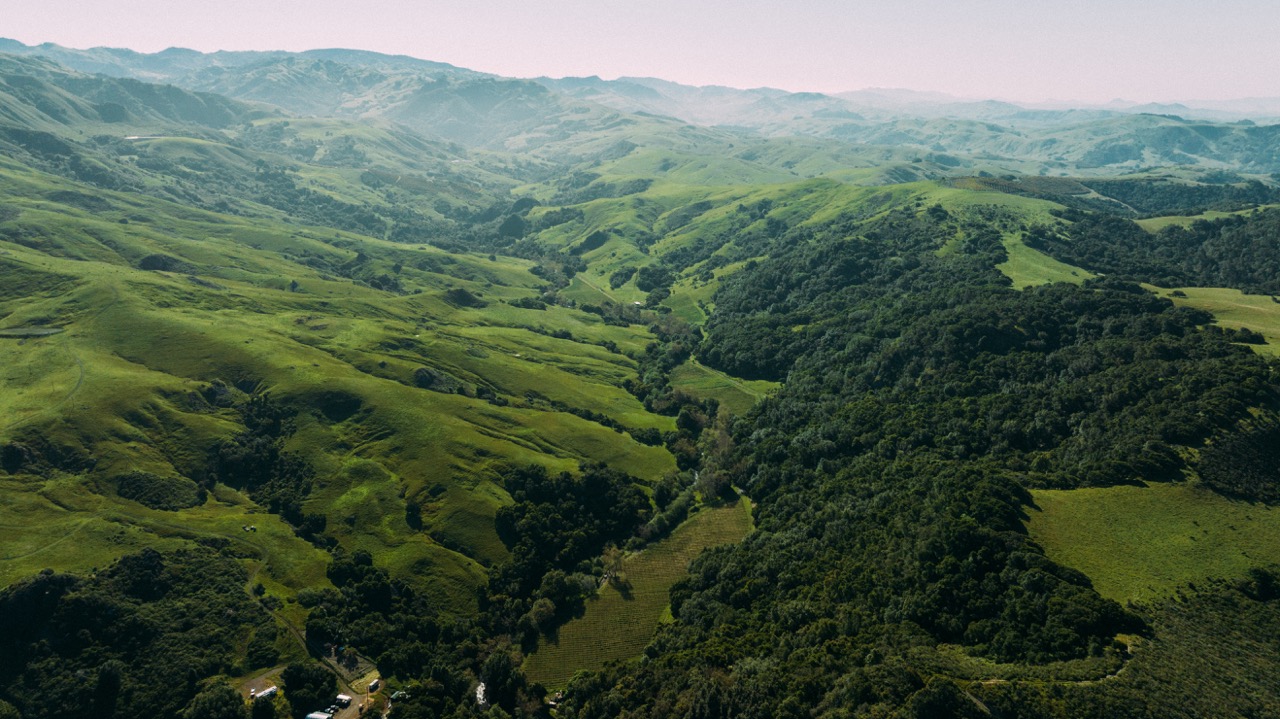
I’m very interested in the Mondeuse variety and your inspiration from Jacques Maillet. How did that come about? What fascinates you about it?
I used to drink Jacques Maillet’s Autrement every time I went to Paris. When I first came to Cambria in 2016, I thought I could grow Mondeuse well here. We usually harvest in early November at around 11% alcohol, so it’s perfect!
In Jon Bonné's book, The New California Wine, you are named as one of the driving forces. What do you think the new Californian wine is, if you go more in depth, without general phrases like less oak, less alcohol and more freshness?
I think that when that book was written, the focus was more on producers making more balanced wines. Now, when a lot of people are doing that, we ned to move forward and focus on organic farming and low intervention winemaking. I think the future is going to be about growers who make “honest” wines. The wines that describe the place, variety and the intention of the producer.
You once said, "I want serious wine, made in a natural way." I really like to quote that, since I think it's the future. How did you get there, is it a synthesis of different approaches?
I think I am only at the beginning of this journey. In the last 5 years, I have learned mostly by observing nature. I spent 2 years farming 4.5 hectares alone. Those years of observation gave me the knowledge to put together my team and to do more. Now we have 13.5 hectares.
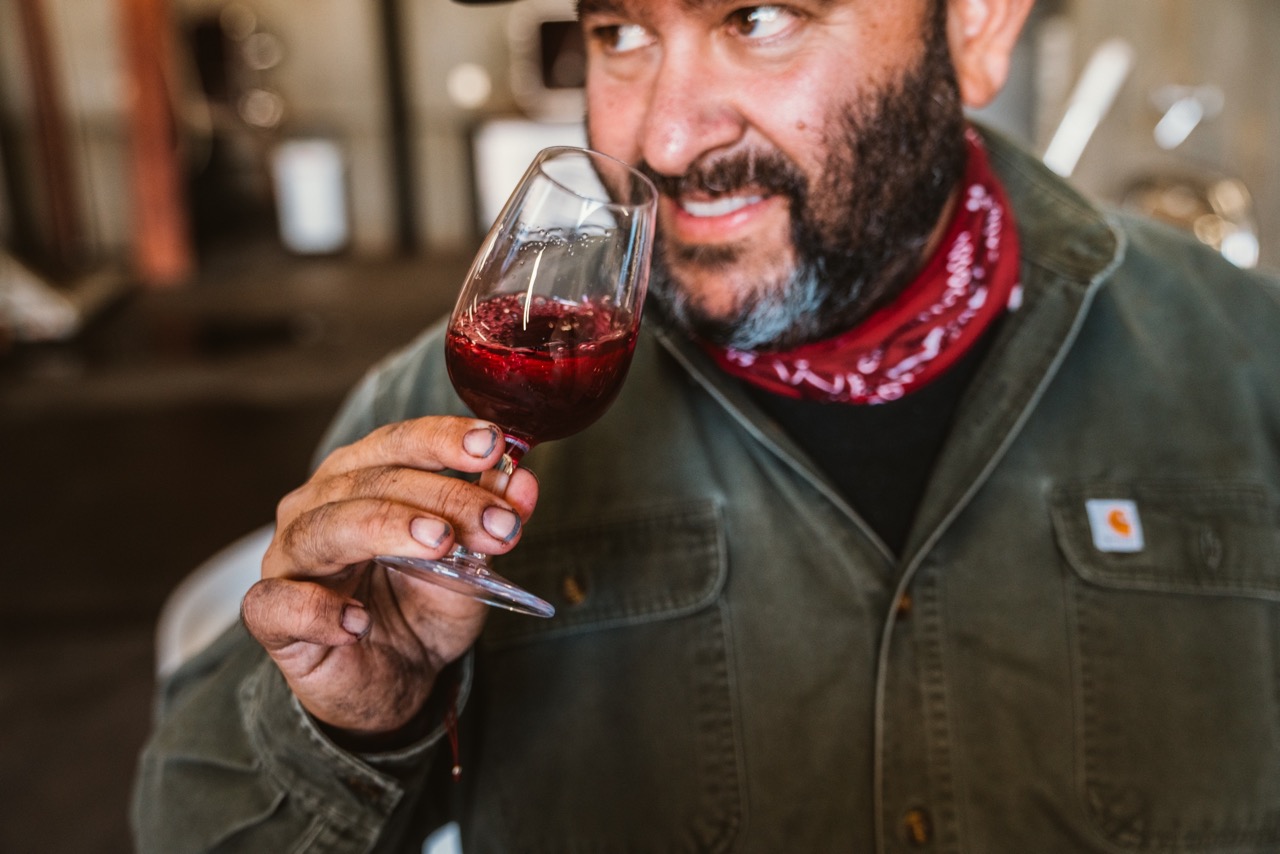
I would like to learn something from you about "simplicity". It's something I'm looking for in wine, in life, in attitude. Is it something that you're also interested in? Happy to hear some advice here!
It’s hard to describe, but it’s something I learnt growing up in India. And every time I go back, I see it everywhere there. In life, we build our own world of things we need and things we want. I try to focus only on things we need. I try to avoid things I want. Simplicity gives me happiness.
One bottle, one meeting with a winemaker, one moment with wine, that has impacted you the most in your life.
My first visit with Thierry Allemand, in 2004. It changed everything. Tasting 1999 Cornas Sans Soufre was it!!
What is wine, and what should it be? Is it food, is it an art, is it something in between? Or is it a social lubricant? What is it, really?
It’s first a grocery, food. Something that we should drink with respect. It definitely is a social lubricant. So many stories of people who have planted and farmed the vines over generations. We share it in joy and sorrow with friends and family. It is the fabric of life.